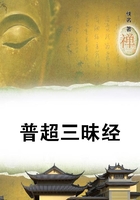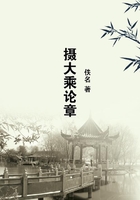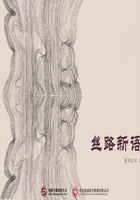All these have unalterable and fixed foundations in nature, and are therefore equally investigated by reason, and known by study; some with more, some with less clearness, but all exactly in the same way.A picture that is unlike, is false.Disproportionate ordinance of parts is not right because it cannot be true until it ceases to be a contradiction to assert that the parts have no relation to the whole.Colouring is true where it is naturally adapted to the eye, from brightness, from softness, from harmony, from resemblance; because these agree with their object, nature, and therefore are true: as true as mathematical demonstration; but known to be true only to those who study these things.
But besides real, there is also apparent truth, or opinion, or prejudice.With regard to real truth, when it is known, the taste which conforms to it is, and must be, uniform.With regard to the second sort of truth, which may be called truth upon sufferance, or truth by courtesy, it is not fixed, but variable.However, whilst these opinions and prejudices on which it is founded continue, they operate as truth; and the art, whose office it is to please the mind, as well as instruct it, must direct itself according to opinion, or it will not attain its end.
In proportion as these prejudices are known to be generally diffused, or long received, the taste which conforms to them approaches nearer to certainty, and to a sort of resemblance to real science, even where opinions are found to be no better than prejudices.And since they deserve, on account of their duration and extent, to be considered as really true, they become capable of no small decree of stability and determination by their permanent and uniform nature.
As these prejudices become more narrow, more local, more transitory, this secondary taste becomes more and more fantastical; recedes from real science; is less to be approved by reason, and less followed in practice; though in no case perhaps to be wholly neglected, where it does not stand, as it sometimes does, in direct defiance of the most respectable opinions received amongst mankind.
Having laid down these positions, I shall proceed with less method, because less will serve, to explain and apply them.
We will take it for granted that reason is something invariable and fixed in the nature of things; and without endeavouring to go back to an account of first principles, which for ever will elude our search, we will conclude that whatever goes under the name of taste, which we can fairly bring under the dominion of reason, must be considered as equally exempt from change.If therefore, in the course of this inquiry, we can show that there are rules for the conduct of the artist which are fixed and invariable, it implies, of course, that the art of the connoisseur, or, in other words, taste, has likewise invariable principles.
Of the judgment which we make on the works of art, and the preference that we give to one class of art over another, if a reason be demanded, the question is perhaps evaded by answering, "I judge from my taste"; but it does not follow that a better answer cannot be given, though for common gazers this may be sufficient.Every man is not obliged to investigate the causes of his approbation or dislike.
The arts would lie open for ever to caprice and casualty, if those who are to judge of their excellences had no settled principles by which they are to regulate their decisions, and the merit or defect of performances were to be determined by unguided fancy.And indeed we may venture to assert that whatever speculative knowledge is necessary to the artist, is equally and indispensably necessary to the connoisseur.
The first idea that occurs in the consideration of what is fixed in art, or in taste, is that presiding principle of which I have so frequently spoken in former discourses, the general idea of nature.The beginning, the middle, and the end of everything that is valuable in taste, is comprised in the knowledge of what is truly nature; for whatever ideas are not conformable to those of nature, or universal opinion, must be considered as more or less capricious.
The idea of nature comprehending not only the forms which nature produces, but also the nature and internal fabric and organisation, as I may call it, of the human mind and imagination: general ideas, beauty, or nature, are but different ways of expressing the same thing, whether we apply these terms to statues, poetry, or picture.Deformity is not nature, but an accidental deviation from her accustomed practice.This generalidea therefore ought to be called nature, and nothing else, correctly speaking, has a right to that name.But we are so far from speaking, in common conversation, with any such accuracy, that, on the contrary, when we criticise Rembrandt and other Dutch painters, who introduced into their historical pictures exact representations of individual objects with all their imperfections, we say, though it is not in a good taste, yet it is nature.
This misapplication of terms must be very often perplexing to the young student.Is not, he may say, art an imitation of nature? Must he not, therefore, who imitates her with the greatest fidelity be the best artist? By this mode of reasoning Rembrandt has a higher place than Raffaelle.But a very little reflection will serve to show us that these particularities cannot be nature: for how can that be the nature of man, in which no two individuals are the same?
It plainly appears that as a work is conducted under the influence of general ideas or partial it is principally to be considered as the effect of a good or a bad taste.
As beauty therefore does not consist in taking what lies immediately before you, so neither, in our pursuit of taste, are those opinions which we first received and adopted the best choice, or the most natural to the mind and imagination.


